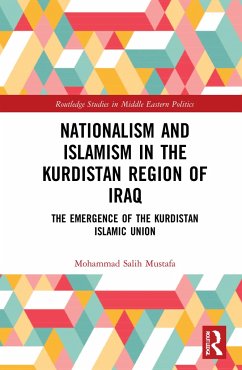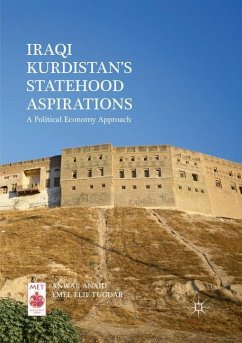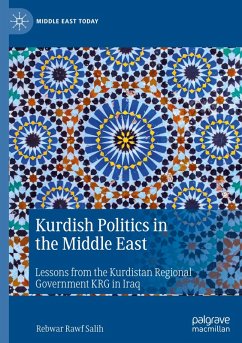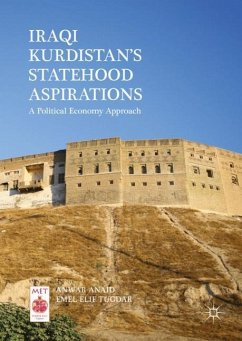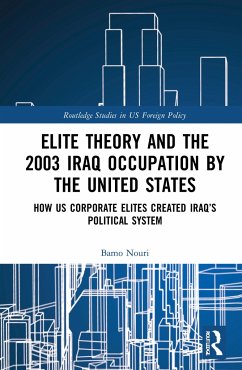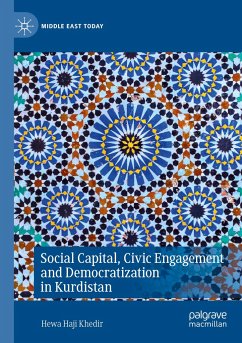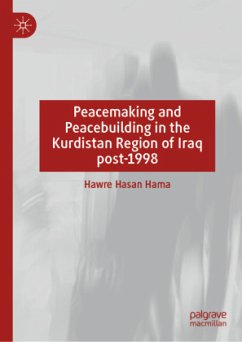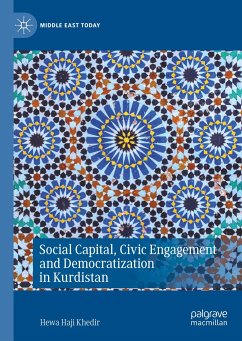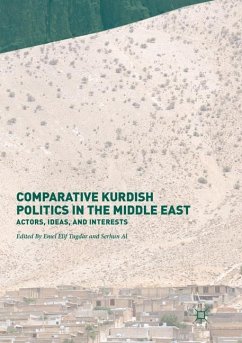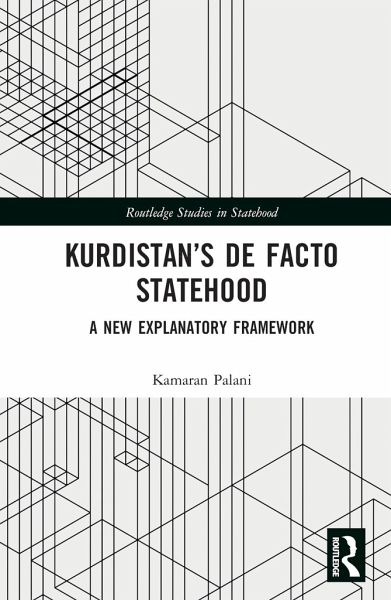
Kurdistan's De Facto Statehood
A New Explanatory Framework
Versandkostenfrei!
Versandfertig in 1-2 Wochen
167,99 €
inkl. MwSt.
Weitere Ausgaben:

PAYBACK Punkte
84 °P sammeln!
This book explains the dynamics and nature of Iraqi Kurdistan's de facto statehood since its inception in 1991, in particular the vicissitudes de facto independence since then. The work examines de facto statehood in Kurdistan, and uncovers the dynamics of de facto statehood in Kurdistan at internal, national and international levels. Kurdistan's de facto statehood is shown to be inherently characterised by fluidity. In this book, fluidity is defined as a highly unstable feature of de facto statehood in the relational context of non-recognition. The book includes interviews with a number of hi...
This book explains the dynamics and nature of Iraqi Kurdistan's de facto statehood since its inception in 1991, in particular the vicissitudes de facto independence since then. The work examines de facto statehood in Kurdistan, and uncovers the dynamics of de facto statehood in Kurdistan at internal, national and international levels. Kurdistan's de facto statehood is shown to be inherently characterised by fluidity. In this book, fluidity is defined as a highly unstable feature of de facto statehood in the relational context of non-recognition. The book includes interviews with a number of high-profile politicians and policy makers from the region. These provide unique insights into such issues as the four main factors at play in the fluidity of the de facto state of Kurdistan: the balance of power between Erbil and Baghdad; the level and form of internal fragmentation; the change of strategies to gain international recognition; and the uncertain and fluctuating external support. This book will be of much interest to students of statehood studies, Middle Eastern politics, and International Relations.






